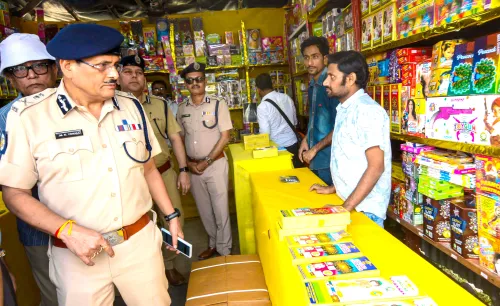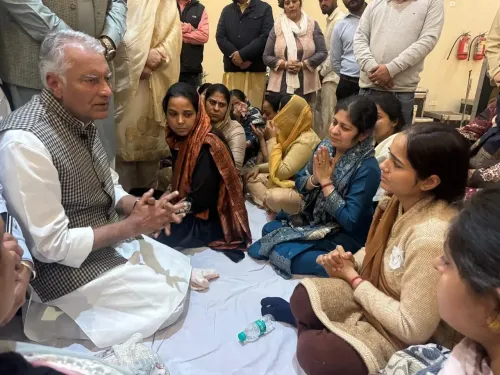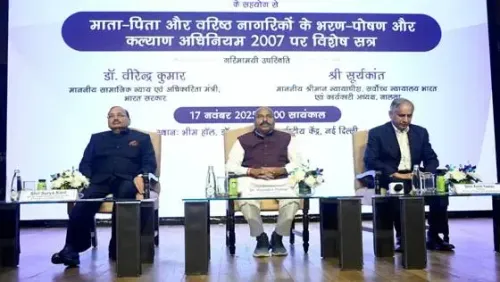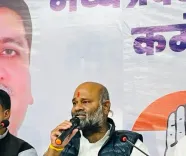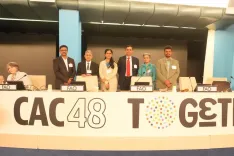Did the SC Issue a Notice on the PIL Regarding Anil Ambani's Alleged Bank Fraud?
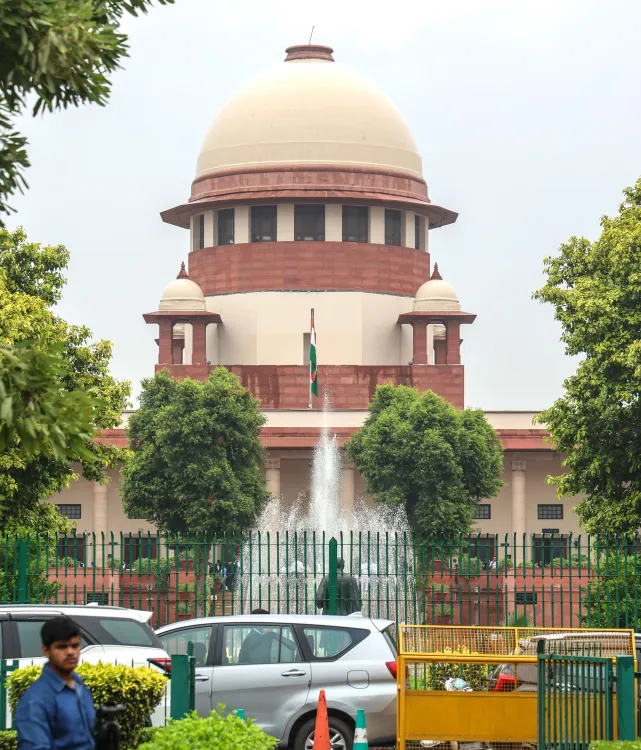
Synopsis
Key Takeaways
- SC issues notices to Union government, Anil Ambani, and RCOM.
- PIL calls for a court-monitored investigation into alleged bank fraud.
- Delay in FIR raises concerns about bank officials' collusion.
- Special Investigation Team (SIT) sought for comprehensive inquiry.
- Potential for significant regulatory reforms in banking sector.
New Delhi, Nov 18 (NationPress) The Supreme Court has recently served notices to the Union government, Anil Ambani, and Reliance Communications Ltd. (RCOM) in response to a Public Interest Litigation (PIL) that calls for a judicially supervised investigation into a purported "extensive, organized bank fraud" allegedly executed by the firm and its associated entities.
A Bench chaired by Chief Justice of India (CJI) B.R. Gavai and including Justice K Vinod Chandran has demanded responses from the involved parties within three weeks.
The petition seeks the establishment of a Special Investigation Team (SIT) consisting of officers from the CBI and Enforcement Directorate (ED). It argues that only a court-monitored inquiry can guarantee a "thorough, coordinated, and transparent investigation" into the alleged misconduct.
According to the PIL, the FIR filed by the CBI in August this year only addresses a small part of the financial discrepancies, despite significant evidence suggesting misappropriation of funds, round-tripping, fictitious dealings, and systematic exploitation of bank loans by RCOM and its affiliated firms.
The petition contends that the State Bank of India (SBI), the principal lender in a consortium that dispensed ₹31,580 crore between 2013 and 2017, delayed filing an FIR for five years, even though it possessed a detailed forensic audit report since 2020.
"Even with the 2020 Forensic Audit Report in hand, which highlights diversion, evergreening, fictitious transactions, and the utilization of shell companies, the bank failed to take any legal action until August 2025. This delay raises questions about whether officials acted collusively or with intent to protect the borrower group," the plea asserted.
"The five-year postponement in lodging the FIR by the bank suggests involvement of bank officials and other public servants who may have enabled, concealed, or facilitated the fraud," it further claimed.
The petition draws from various sources, including forensic audits from SBI and RBI, the Grant Thornton CIRP report, technical evaluations, news reports, and the Cobrapost report, suggesting that the ADA Group was engaged in a "prolonged, organized, and coordinated scheme" to misappropriate public funds.
"These reports consistently indicate fund diversions, round-tripping, misuse of external borrowings, fabrication of accounting records, and the operation of shell companies," the petition alleged.
Moreover, it claimed that suspected shell companies like Netizen Engineering Pvt Ltd and Kunj Bihari Developers Pvt Ltd "were found to be nonexistent at their registered addresses," indicating a calculated corporate framework designed to misappropriate and launder public funds.
Despite searches conducted at over 35 locations and alleged frauds totaling more than ₹20,000 crore, the PIL pointed out that "no arrests have been made, no assets have been seized, and no accounts have been frozen."
"This highlights difficulties faced by the investigative agencies and underscores the need for judicial supervision," the plea argued, adding that a fraud of such scale "involving public money and institutions cannot be investigated in a piecemeal manner."
The PIL also advocates for the formation of an expert committee under the Supreme Court's supervision to propose structural reforms in banking and regulatory oversight.

